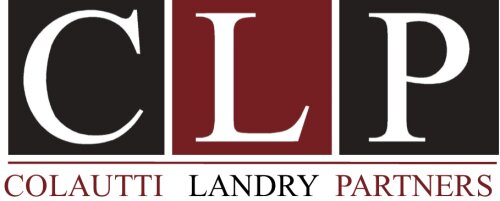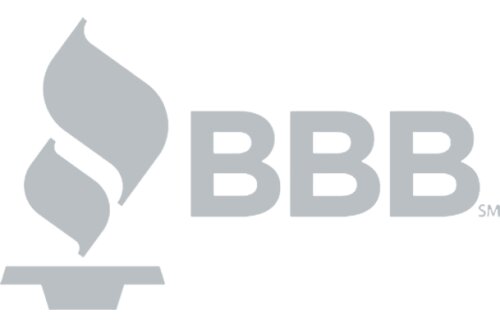Best Land Use & Zoning Lawyers in Windsor
Share your needs with us, get contacted by law firms.
Free. Takes 2 min.
Free Guide to Hiring a Real Estate Lawyer
List of the best lawyers in Windsor, Canada
About Land Use & Zoning Law in Windsor, Canada
Land use and zoning law in Windsor, Canada, governs how land and property within the city can be used and developed. These laws set out what kinds of buildings or activities are allowed in certain areas (residential, commercial, industrial), as well as limitations on building height, lot sizes, setbacks, and density. Their main purpose is to ensure that growth in the city is balanced, sustainable, and aligned with Windsor’s community goals and development plans. The City of Windsor’s zoning by-law is the primary document that sets out specific rules and requirements for all pieces of land within city limits.
Why You May Need a Lawyer
There are many situations where consulting a lawyer with experience in land use and zoning can be critical. Property owners, developers, tenants, and even neighbours may face challenges in understanding and navigating these laws. Common scenarios include:
- Applying for rezoning or variances to use land in a way not currently permitted
- Appealing a municipal decision that negatively affects property rights or values
- Understanding the development potential or restrictions of a property before buying
- Resolving disputes between neighbours regarding permitted land uses or property boundaries
- Dealing with enforcement action for alleged zoning violations by the City
- Making applications for building permits or site plan approvals that hinge on compliance with zoning rules
A lawyer can help interpret complex by-laws, represent you in hearings or appeals, prepare applications and supporting documents, and protect your interests through negotiation or litigation if needed.
Local Laws Overview
Windsor’s primary zoning authority comes from its Zoning By-law 8600 and Official Plan. Here are some key local law aspects to be aware of:
- Zoning Districts: Windsor is divided into many zones (e.g. RD for residential, CD for commercial), with each zone having detailed permitted uses and restrictions.
- Permitted and Prohibited Uses: Every property is subject to rules about what uses are permitted “as of right” versus what requires special permission (such as a minor variance or zoning amendment).
- Variances and Amendments: Property owners may request relief from zoning requirements through applications to the Committee of Adjustment or City Council. Public consultation is often part of the process.
- Site Plan Control: Certain developments require site plan approval, addressing how land is laid out, landscaped, and serviced.
- Building Permits: These are only issued if the proposed use fully complies with zoning; otherwise, you must seek approval for changes first.
- Enforcement: The City can issue fines or orders to fix non-compliance if zoning rules are violated, and refusal to comply can result in legal action.
All property owners and developers must ensure that their plans align with both the zoning by-law and the city’s Official Plan, which sets broad policies for how land is to be used and developed over time in Windsor.
Frequently Asked Questions
What is zoning and why does it matter for my property?
Zoning refers to the regulation of land by local government according to land use categories (such as residential, commercial, or industrial). It matters because it determines what you can build, how you can use your property, and what kinds of changes you can make.
How do I find out what my property is zoned for?
You can check the City of Windsor’s zoning maps and by-law online or contact the City of Windsor Planning Department directly for information on your property’s zoning classification and permitted uses.
Can I use my property for something not currently allowed by the zoning by-law?
Maybe. You would need to apply for a zoning amendment or a variance, and approval is not guaranteed. These processes involve an application, possibly a public hearing, and a decision by City Council or the Committee of Adjustment.
What is a minor variance and when do I need one?
A minor variance is a small exception to the zoning by-law, such as a reduced setback or increased lot coverage. You may apply for one if your proposed change is minor and meets certain criteria.
What happens if I develop or use my land without proper zoning approval?
The City can issue an order to comply, levy fines, and even take legal action if necessary. Non-compliance may also affect your ability to sell or finance your property.
Can I appeal a zoning decision made by the City?
Yes. Most decisions can be appealed to the Ontario Land Tribunal or other relevant bodies, but there are strict timelines and procedures to follow. Legal advice is recommended for appeals.
Do zoning by-laws override private agreements like covenants or easements?
No. Private agreements still apply and may add further restrictions, even if the zoning by-law would otherwise permit a use or structure.
How does the Official Plan affect land use and zoning?
The Official Plan sets out Windsor's vision and general policies for land use and development. Zoning must align with the Official Plan, and amendments to zoning usually require consistency with these larger planning goals.
Is public input required for every zoning change?
For most zoning amendments and some variance applications, public notice and consultation are required. Neighbours and interested parties may have a chance to comment before a decision is made.
Should I talk to a lawyer before buying property in Windsor?
Absolutely. A lawyer can review zoning statuses, identify potential problems or restrictions, and help you understand the long-term implications of your purchase or development plans.
Additional Resources
Here are some helpful governmental bodies and organizations relevant to land use and zoning in Windsor:
- City of Windsor Planning & Building Department: Source for zoning by-laws, applications, and property information.
- Committee of Adjustment (Windsor): Handles minor variance and consent applications.
- Ontario Land Tribunal: Hears appeals related to land use in Ontario, including zoning disputes.
- Ontario Ministry of Municipal Affairs & Housing: Provides guidance on planning and land use policy across Ontario.
- Law Society of Ontario: Find licensed Ontario lawyers with land use and municipal law expertise.
Next Steps
If you need legal assistance with a land use or zoning matter in Windsor, consider taking the following actions:
- Gather all relevant documents, including property deeds, site plans, correspondence with the City, and any notices or orders you have received.
- Speak with the City’s Planning Department to clarify zoning and development requirements affecting your property.
- Consult a lawyer with experience in municipal, land use, and zoning law to review your situation, explain your rights and options, and assist with applications or appeals as necessary.
- If you are facing a deadline (such as an appeal period), act promptly, as municipal processes have strict timelines that must be observed.
- Maintain clear communication and keep records of all interactions with city officials, your lawyer, and any other stakeholders.
Taking early and informed action is the best way to protect your interests and ensure compliance with Windsor’s land use and zoning laws.
Lawzana helps you find the best lawyers and law firms in Windsor through a curated and pre-screened list of qualified legal professionals. Our platform offers rankings and detailed profiles of attorneys and law firms, allowing you to compare based on practice areas, including Land Use & Zoning, experience, and client feedback.
Each profile includes a description of the firm's areas of practice, client reviews, team members and partners, year of establishment, spoken languages, office locations, contact information, social media presence, and any published articles or resources. Most firms on our platform speak English and are experienced in both local and international legal matters.
Get a quote from top-rated law firms in Windsor, Canada — quickly, securely, and without unnecessary hassle.
Disclaimer:
The information provided on this page is for general informational purposes only and does not constitute legal advice. While we strive to ensure the accuracy and relevance of the content, legal information may change over time, and interpretations of the law can vary. You should always consult with a qualified legal professional for advice specific to your situation.
We disclaim all liability for actions taken or not taken based on the content of this page. If you believe any information is incorrect or outdated, please contact us, and we will review and update it where appropriate.












